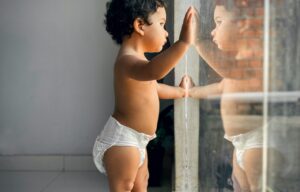It’s a common frustration for parents when they discover their child has lied. Children often lie for various reasons—whether to avoid punishment, gain attention, or due to their vivid imagination. While this behavior is a normal part of growing up, understanding the underlying motives can help parents respond in the most supportive way. Recognizing why children lie provides insight into their feelings and needs. For example, a child might fib about finishing their homework to avoid parental nagging. By understanding READ MORE
Category: Preschoolers
REWARD CHARTS FOR POSITIVE REINFORCEMENT: WHAT NOT TO DO
Imagine your child lighting up with pride as they place a sticker on their reward chart, feeling recognized for a job well done. Reward charts, sometimes called behavior charts, can be fantastic tools for reinforcing positive behaviors in children. When used effectively, these charts help children build habits like tidying up, following routines, or practicing kindness. However, without careful planning, they can lead to frustration for both caregivers and kids, sometimes undermining the very behaviors they’re meant to encourage. This READ MORE
UNDERSTANDING CHILDHOOD AND ADOLESCENT ANXIETY: A GUIDE FOR PARENTS
Anxiety is a natural part of life and, in small doses, is helpful. However, when anxiety becomes excessive and persistent, it can significantly impact a child or adolescent’s well-being and daily functioning. As a parent, being aware of the various types of anxiety disorders and their developmental risk factors is crucial in recognizing and supporting your child’s mental health. Separation Anxiety Disorder Commonly observed in younger children, separation anxiety involves intense fear or worry about being away from familiar surroundings, READ MORE
BUILDING RESILIENCE IN CHILDREN: 3 WAYS OF NURTURING STRENGTH THROUGH ADVERSITY
Resilience, the ability to bounce back from adversity, is a crucial trait that empowers children to navigate life’s challenges with fortitude and adaptability. It equips them with the tools to cope with setbacks, grow from experiences, and thrive in the face of adversity. Cultivating resilience in children involves fostering independence, coping skills, and a healthy mindset. It also reduces the risk of developping anxiety, depression and other mental health conditions. Overprotective types of parenting However, contemporary parenting trends have seen READ MORE
HOW OUR MINDS FILTER INFORMATION: UNDERSTANDING INATTENTION
Imagine that your brain’s capacity to pay attention is like a camping headlight. When you’re focused, that headlight shines bright on what you’re doing. But for some people, this headlight flickers or doesn’t stay on one thing for long. In other words, inattention is difficulty keeping that mental headlight steady and on the task at hand. Inattention can also be conceptualized as a filter problem. You brain needs to ignore and suppress thousands of pieces of information (called stimuli) throughout READ MORE
WORRIED ABOUT JEALOUSY TOWARDS THE NEW BABY? A GUIDE TO PREPARING YOUR TODDLER FOR A NEW SIBLING
Expecting a second (or third, or fourth!) baby? Congrats! Here are a few tips on how to prepare and manage your eldest’s jealousy. You are excited about the new life growing inside your belly, but also a bit apprehensive. How will my eldest react? Will they play together? Will my oldest feel neglected during the first few months? Will they get jealous? Sibling jealousy is a common concern. Let’s discuss what steps you can take for the transition to be READ MORE
TROUBLESHOOTING POTTY TRAINING ISSUES: 5 COMMON PROBLEMS AND HOW TO ADDRESS THEM
Potty training can be very easy but only if your child is ready! Children differ in how fast they walk and talk and same goes for potty training. Some children are ready to potty train earlier than others; some can be potty trained before 2 years of age some after 4. When children are ready and parents are consistent, most children can be daytime potty trained within a week or two. For other children, it can take longer. In this READ MORE
5 EMOTIONAL REGULATION STRATEGIES FOR CHILDREN & TEENS
Learn effective emotional regulation strategies for children and teens. Help them navigate their emotions and develop valuable coping skills for life. Emotional regulation is an important part of a child’s development. As parents, it’s our responsibility to help our kids learn how to manage their difficult emotions and feelings. Ultimately, we want them to develop self-regulation skills for dealing with difficult emotions on their own. In this article, we’ll explore five effective strategies that parents and caregivers can use for READ MORE
ADHD IN CHILDREN AND ADOLESCENTS: 10 TIPS FOR REACHING THEIR FULL POTENTIAL
Unlock your child’s true potential with expert guidance on navigating ADHD in children. Discover effective strategies for helping your child thrive. Raising kids and teens can be quite an adventure, filled with ups, downs, and everything in between. But when your child has Attention Deficit Hyperactivity Disorder (ADHD), the journey can come with unique challenges. That’s why I created this guide for parents on navigating ADHD in children and helping them reach their full potential. ADHD is more than just READ MORE
8 WAYS TO PROMOTE GOOD SLEEP HYGIENE FOR KIDS AND TEENS
We all know how crucial a good night’s sleep is for children’s growth and well-being. In this blog post, we’ll explore practical strategies to establish a solid sleep routine and create a sleep-friendly environment for your little ones. Here’s what parents need to know about promoting positive sleep hygiene for kids. (Bonus: these tips work well for grown-ups, too!) What Is Sleep Hygiene? Sleep hygiene refers to a set of healthy sleeping habits that enables children and adolescents to fall READ MORE










